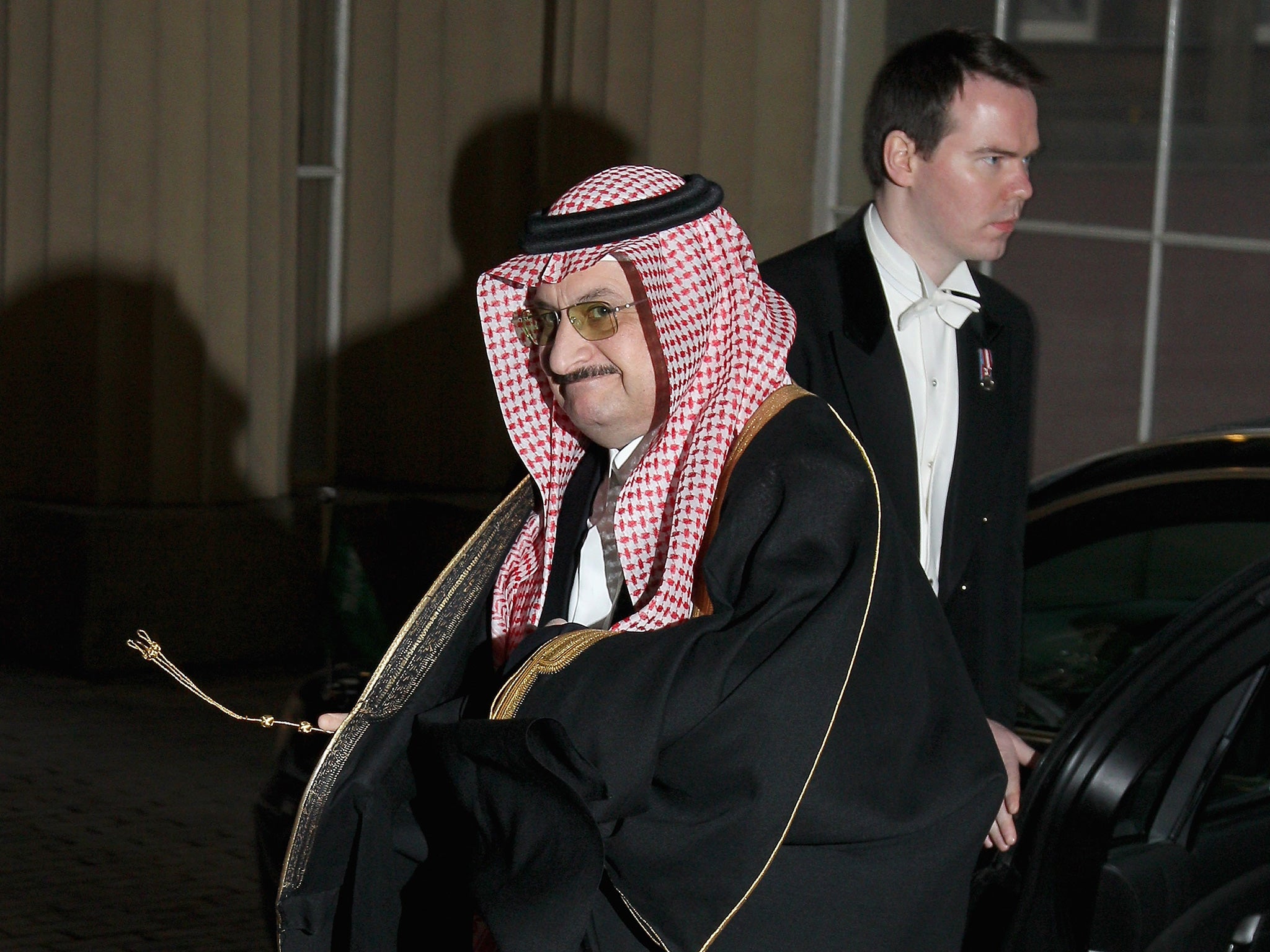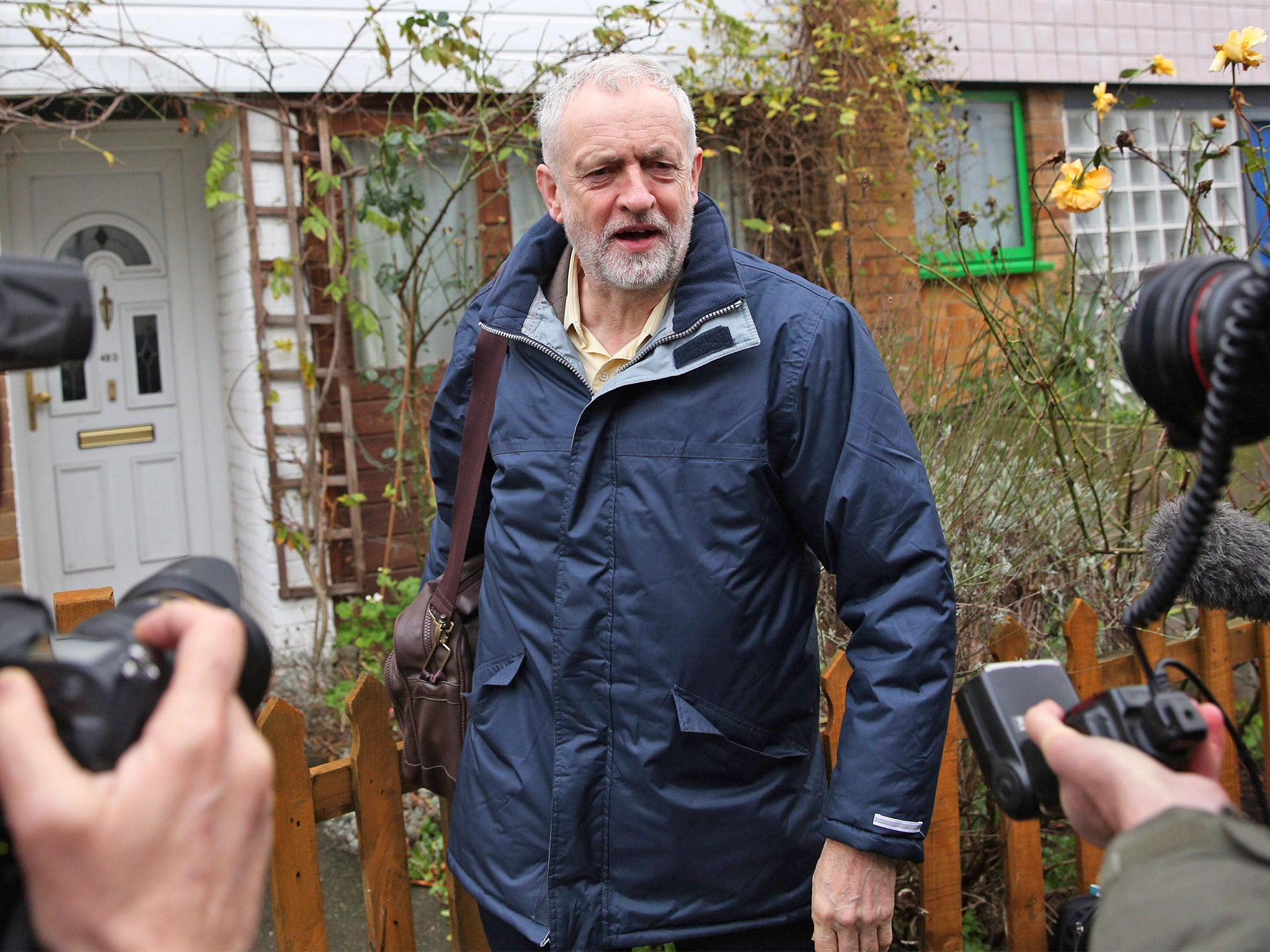Saudi Arabia accuses Jeremy Corbyn of 'distorting' truth over terrorism funding claims
Prince Mohammed bin Nawaf bin Abdulaziz al Saud said any suggestion his country supported extremism was an 'insult'

Your support helps us to tell the story
From reproductive rights to climate change to Big Tech, The Independent is on the ground when the story is developing. Whether it's investigating the financials of Elon Musk's pro-Trump PAC or producing our latest documentary, 'The A Word', which shines a light on the American women fighting for reproductive rights, we know how important it is to parse out the facts from the messaging.
At such a critical moment in US history, we need reporters on the ground. Your donation allows us to keep sending journalists to speak to both sides of the story.
The Independent is trusted by Americans across the entire political spectrum. And unlike many other quality news outlets, we choose not to lock Americans out of our reporting and analysis with paywalls. We believe quality journalism should be available to everyone, paid for by those who can afford it.
Your support makes all the difference.Saudi Arabia's ambassador has criticised Jeremy Corbyn for what he called "distortion" over the kingdom's role in tackling Isis.
Mr Corbyn said on Tuesday that the rise of Isis had raised some "very big questions" as to who was behind the jihadist group, naming Saudi Arabia in particular.
But Prince Mohammed bin Nawaf bin Abdulaziz al Saud said any suggestion his country supported extremism was an "insult".
Writing in the Times, he said: "As the scourge of terrorism continues to spread, the blame game has begun. Saudi Arabia finds itself once again targeted by politicians such as Jeremy Corbyn and Lord Ashdown, who wrongly suggest that in some way we support radical extremism.
"I prefer to believe this is misunderstanding, not malice. The contrary is an insult to our government, our people and our faith."
He said his nation had battling terrorism for "decades" and suggested that "neither the governments of the West or of the Middle East can do this alone".

"Mistrust, misunderstanding and misrepresentation of Saudi Arabia's role by British politicians can only make it harder for us to achieve this aim," the ambassador added.
"These accusations are lobbed at Saudi Arabia on a daily basis; they are not helpful to anyone except the extremists who thrive on our division. Today, more than ever, distortion that serves political point-scoring (with all due respect) must take a back seat."
Both the Labour leader and Lord Ashdown have raised questions over the militants' funding and access to arms during the public debate about UK intervention in Syria.
Mr Corbyn said: "Who is funding Isis? Who is arming Isis? Who is providing safe havens for Isis? You have to ask questions about the arms that everyone has sold in the region, the role of Saudi Arabia in this. I think there are some very big questions."
And the former Liberal Democrat leader said: "The failure to put pressure on the Gulf states - and especially Saudi and Qatar - first of all to stop funding the Salafists and the Wahhabists, secondly to play a large part in this campaign, and other actions where the Government has refused to have a proper inquiry into the funding of jihadism in Britain, leads me to worry about the closeness between the Conservative Party and rich Arab Gulf individuals."
The prince's public intervention follows a previous warning of "potentially serious repercussions" of a breakdown in relations with the UK.
In October, he singled out the cancellation of a deal to train prison staff in the Gulf state as he railed against an "alarming change in the way Saudi Arabia is discussed in Britain".
Meanwhile, King Abdullah II of Jordan has said bombing by RAF jets in Syria could be "crucial".
Writing in the Daily Telegraph, he said: "While we respect borders, terrorists do not recognise them. Therefore, we need to look at the bigger picture. It is not enough to focus just on Iraq because they also control large areas in Syria and are establishing footholds in other areas in Asia and Africa.
"I do not believe our countries, or our world, can afford to wait much longer. While we pursue the political solution in Syria, we must work together on fighting them in that country, and everywhere.
"We ask you, our friends in the United Kingdom, Europe and the world, to stand together with is in meeting the challenge and eliminating this global threat."
PA
Join our commenting forum
Join thought-provoking conversations, follow other Independent readers and see their replies
Comments